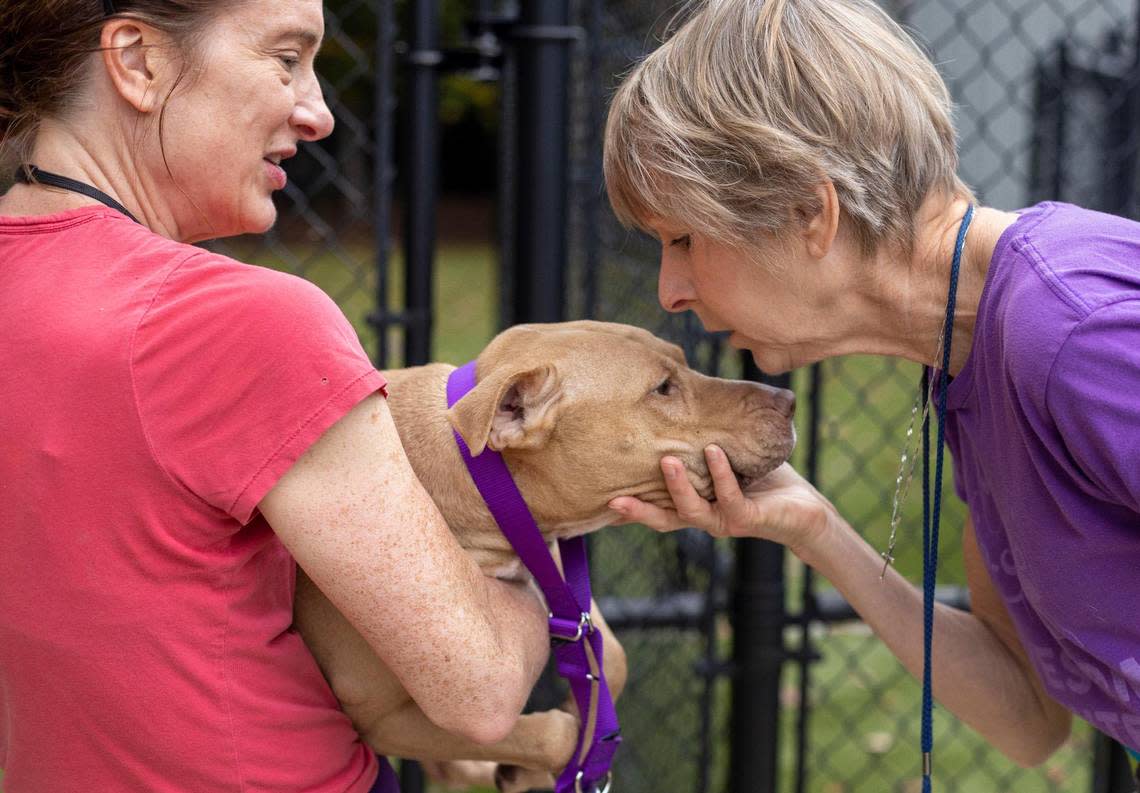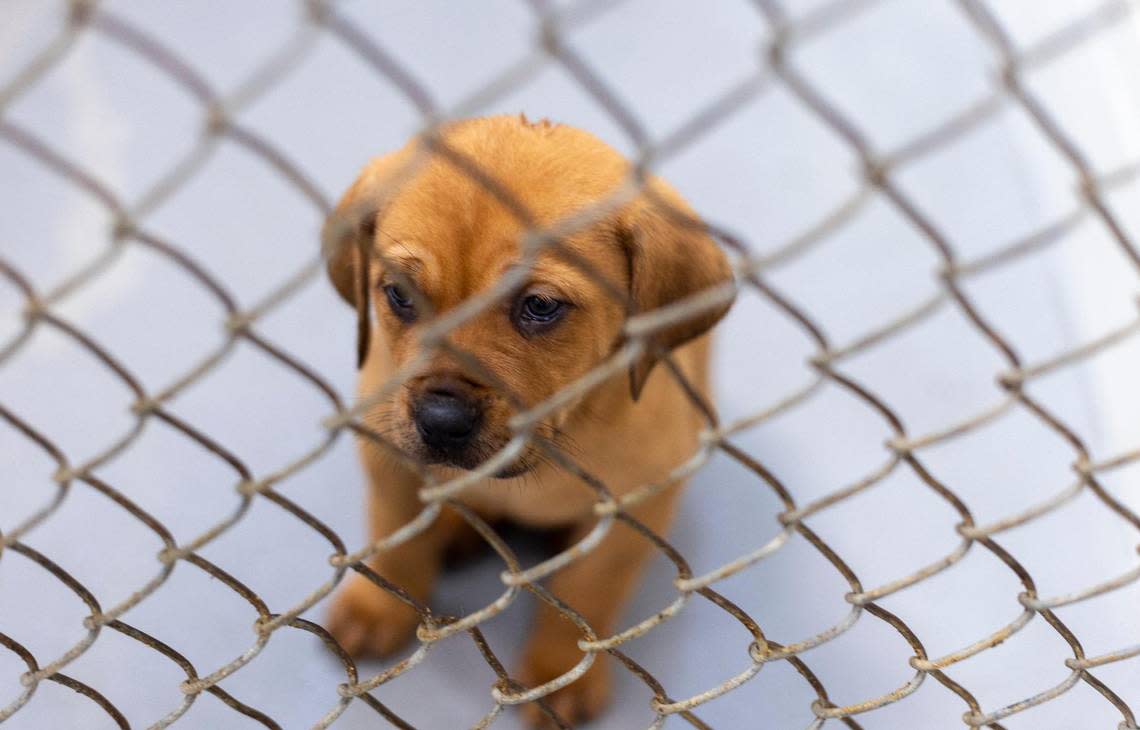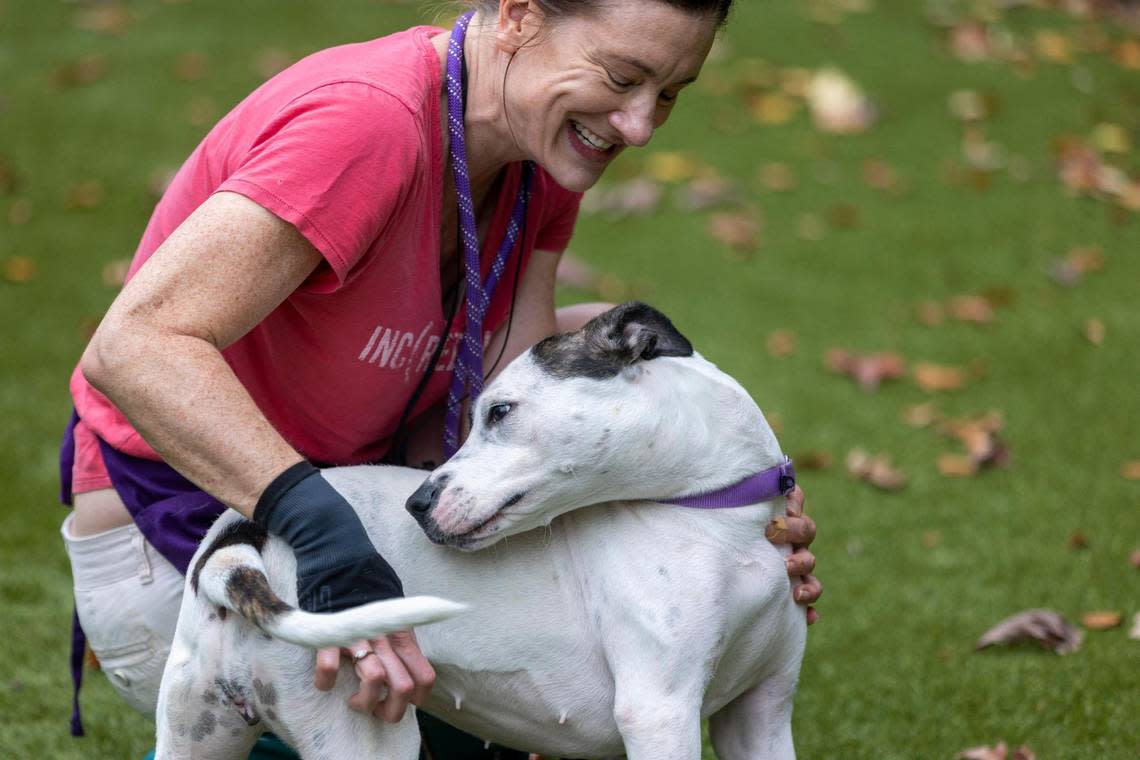‘It’s heartbreaking’: Wake Animal Center pleads for help saving pets in crowded shelter
The number of stray and owner-surrendered pets has increased in the last few months in the Triangle, prompting local shelters to scramble to meet the demands of pet care.
For the second time this year, the Wake County Animal Center has run out of space for pets.
This week, the shelter made an urgent plea for the community’s help in giving the pets permanent homes.
With only 75 kennels for dogs and 42 for cats, the shelter is overflowing with 110 dogs and 76 cats at the Raleigh facility as of Monday.
And just over the weekend, the shelter saw an influx of 108 new animals: 54 dogs, 14 puppies, 16 cats, 20 kittens, 1 rabbit and 3 rats.
If the animals aren’t adopted, the shelter could resort to euthanasia, authorities said in a news release.
The shelter is the only one in the county that does not turn away any animal. But it’s not classified as a “no-kill” shelter, so it has resorted to euthanasia in the past when over capacity.
“This plea is to make our community aware of the urgent need,” said Jennifer Federico, the shelter’s director, in a news release. “There are only so many kennels and we need the community’s help.”
Euthanasia rates in Wake County have decreased in the last three years. In 2019, 2,268 animals were killed and 1,273 in 2020, The News & Observer reported.
In June, the shelter sought the community’s help in dog adoptions when it reached capacity in the kennels. Federico told The N&O that surrendered pets make up about 30% of the number of pets at the facility.
In October, the shelter lowered the adoption fee for pitbulls to encourage adoptions of the dogs. Pitbull type dogs make up about 70% of the dogs currently there, Federico said.
The community has responded to the calls for adoptions but local animal advocates say more can be done.

Owner-surrendered pets
Much like the county shelter, other local animal shelters and rescue groups in the Triangle are feeling the pressures of making space for pets and providing assistance to pet-owners.
At the SPCA of Wake County, the number of requests for assistance has increased in the last few weeks, according to Darci VanderSlik, the communications director for organization.
Since the start of the year, Wake’s SPCA has taken in 3,798 animals. Of those, 918 of them were owner-surrendered pets, VanderSlik said in an interview.
“Honestly, there’s a bigger trend behind the recent upticks in owner-surrenders in these last few weeks,” VanderSlik said. “We’ve been seeing it all year.”
The reasons for owner-surrendered pets vary, she said.
Wake’s SPCA tracked some of the reasons and found that most pets come to the facility after people found litters of stray kittens or puppies and decided not to keep all of them. Kittens are the animals most at risk for reproducing, VanderSlik said. This year, the Wake SPCA has taken in about 155 litters of puppies and kittens.
Another reason is when people find an adult cat or dog wandering around and people turn them in.
“We do send those over to the county shelter because that is actually the best place for the pet to be reunited with owners,” VanderSlik said.
The spring and summer are puppy and kitten season, and that is when the number of strays and unplanned litters skyrockets, VanderSlik said.
“People are trying to do the right thing by bringing them in to the shelter to find them new homes,” VanderSlik said. “However, because of the pandemic, there was a pause in spay and neuter resources and the availability of spay and neuter during that time.”

5 ways you can help free space and save lives at an animal shelter
‘It’s heartbreaking’
Pet-owners who have to move or become homeless also contributes to the reason for surrenders, said Gail Von Gonten, the secretary of the Friends of the Wake County Animal Center.
“Our goal is to keep the pets in a good home,” she said.
The Friends of the Wake County Animal Center, located in Raleigh, does not hold animals but works with residents to figure out the best options for their pets, with the emphasis on keeping them in the home connected with the shelter.
Von Gonten said the pandemic highlighted some of the struggles pet-owners faced in caring for their furry friends.
In March 2020, the group started its free pet food program.
“People were so impacted by the pandemic. People were feeding (pets) their food because they couldn’t afford pet food,” Von Gonten said. “If anything, it’s only gotten worse. We’re still doing free pet food every month and we’re getting more and more people who cannot afford to feed their pets.”
The cost of vet bills, vaccinations, food and even euthanizing a pet can add up, Von Gonten said.
She said she went to the county shelter on Wednesday and saw 70 dogs in the kennel who had been there over eight days and needed to be walked.
“It’s heartbreaking to see so many there,” she said. “The shelter is asking people not to bring them to the shelter.”

What are no-kill animal shelters and how do they work?
What to do when you find a stray
Instead of bringing stray animals to the shelter, Von Gonten recommends locating the animal’s owner first. If they are unclaimed, pets can be brought to the shelter or other local facilities that accept pets.
“There’s some great websites to post like NextDoor, Lost & Found, Facebook,” she said. “There’s tons. Try and find their owner. The shelter should be your last recourse if possible. That’s what the shelter asks, they’re begging people because they are running out of space.”
The SPCA of Wake County is a limited intake facility, meaning it won’t accept every animal that comes to the door, unlike the county’s animal shelter, VanderSlik said.
The organization created a new online helpline program to assist people who find stray animals, wish to adopt a pet or re-home one. The helpline can be found at spcawake.org/helpline.
The Wake County Animal Center is at 820 Beacon Lake Drive in Raleigh, and all adoptable pets can be found online with information about how to adopt at pets.wakegov.com.
Struggling financially to take care of your pet? Get help with these local resources
Here’s how many animals enter Triangle county shelters — and how many are euthanized
Here’s how animal shelter euthanasia rates compare across the Triangle
